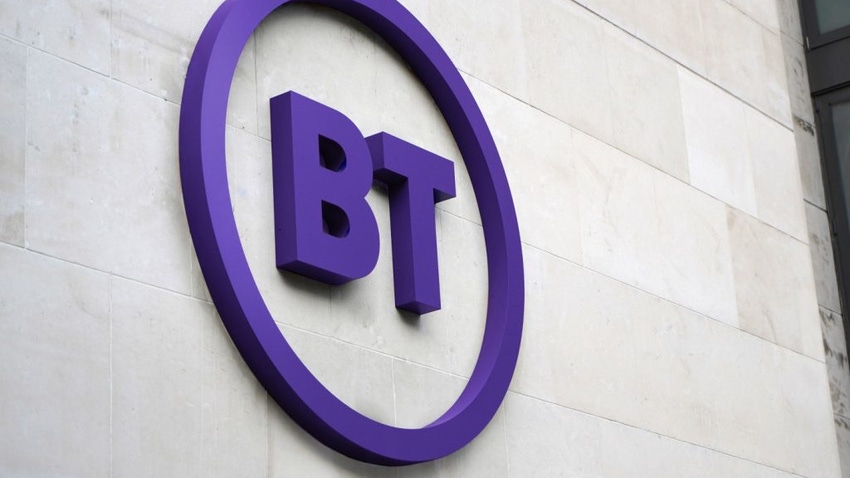BT on the offensive over SRN failures
BT has hit out at its UK mobile operator rivals over their likely inability to hit targets for the rollout of sites under the Shared Rural Network scheme.
January 23, 2024

Howard Watson, Chief Security and Networks Officer at the UK incumbent, this week penned a blog post ostensibly to outline the importance of extending mobile coverage in rural areas, but that also served as a platform to disparage his competitors.
The move comes shortly after BT's mobile arm EE made a big song and dance about hitting its Shared Rural Network, or SRN, targets six months ahead of schedule and as a parliamentary debate on the subject looms.
BT is naturally proud of EE's recent network expansion in rural areas, under the SRN and other government initiatives in Scotland and Wales. But it's also clearly harbouring some feelings of vitriol towards that haven't done as well. The implication is that while EE has been working hard to hit coverage goals, the other three MNOs are casting around for reasons to justify their inaction.
"We've delivered these promises in the face of tough economic conditions, a global pandemic and a wide range of digital transformation within our own networks. Which is why it’s surprising to see those very same problems being used as an excuse by other networks for their slow progress," said Watson.
He was referring to a now oft-quoted Telegraph report from last October that claimed Vodafone, Three and Virgin Media O2 had written to the government asking for the upcoming June SRN interim target of 88% coverage to be extended. That's the target EE hit last week, which is presumably why it now feels safe to go on the offensive.
BT's version of that report is that the telcos in question have asked for extra support from the state to help them hit the June target, Watson notes that one of the three has gone as far as to inform the Business and Trade Select Committee that it will miss the target.
"Of course, disruption can happen," Watson wrote. "Covid did impact on workforce personnel and supply chains, but they impacted networks equally. EE entered the SRN agreement clear-eyed, understanding the deployment environment and the difficulties we would undoubtedly face. We therefore designed our programme to mitigate risks and delays to our roll-out."
Somebody give the man a medal...and perhaps remind him that EE had the broader network in the first place.
"During the programme, we also made difficult decisions to divert spend and resource from other network programmes to overcome issues in a timely manner, given the importance of meeting the deadline to our customers and due to the clear financial penalties for non-delivery," he added.
Because BT is so much better at network rollout than everyone else, he did not add, but might as well have.
It's not just about the SRN either. Watson shared some numbers on the state-backed Scotland 4G Infill programme, which has made funding available for 55 new mobile sites. EE has installed 4G on 50 of those sites. Meanwhile, two of its rivals have managed just less than a third of the total between them, while the other has added 4G to only a single site in the past three years.
Watson did not name names, but the Scottish government's latest progress report, published in October, shows that Three is the laggard with just one site. If only someone would let it merge with another player so it had the scale to invest...
It might seem churlish, but BT is right to point out its rivals' weaknesses in this area. Extending rural coverage is a hugely important issue; it's merely the tone of Watson's blog post that isn't doing the telco any favours here.
The timing of it is well-planned too. The SRN will be debated in Parliament later this week, according to BT, and next month the National Audit Office is expected to tie up its review into the scheme.
"Scrutiny of Government policy matters and installing mobile infrastructure in more rural and remote parts of the UK is always challenging," Watson said. "But EE's efforts shows where there's a willingness to prioritise investment to meet the coverage promises you've made, it should be delivered."
That's easy to say when you're on the right side of that sort of scrutiny, of course.
There have been suggestions that failure to deliver under the SRN could also damage Vodafone and Three's chances of getting their merger past competition authorities in the UK. The telcos have argued that they need to come together to be able to make the required investments in their networks, rural coverage included. But the fact that they are failing in a part-state-funded scheme that they signed up to willingly casts doubt over the credibility of the £11 billion network investment carrot they are dangling in front of regulators, should they get the green light for the merger.
But that was surely not on BT's mind when Watson composed his missive...
About the Author(s)
You May Also Like











_1.jpg?width=300&auto=webp&quality=80&disable=upscale)


.png?width=800&auto=webp&quality=80&disable=upscale)